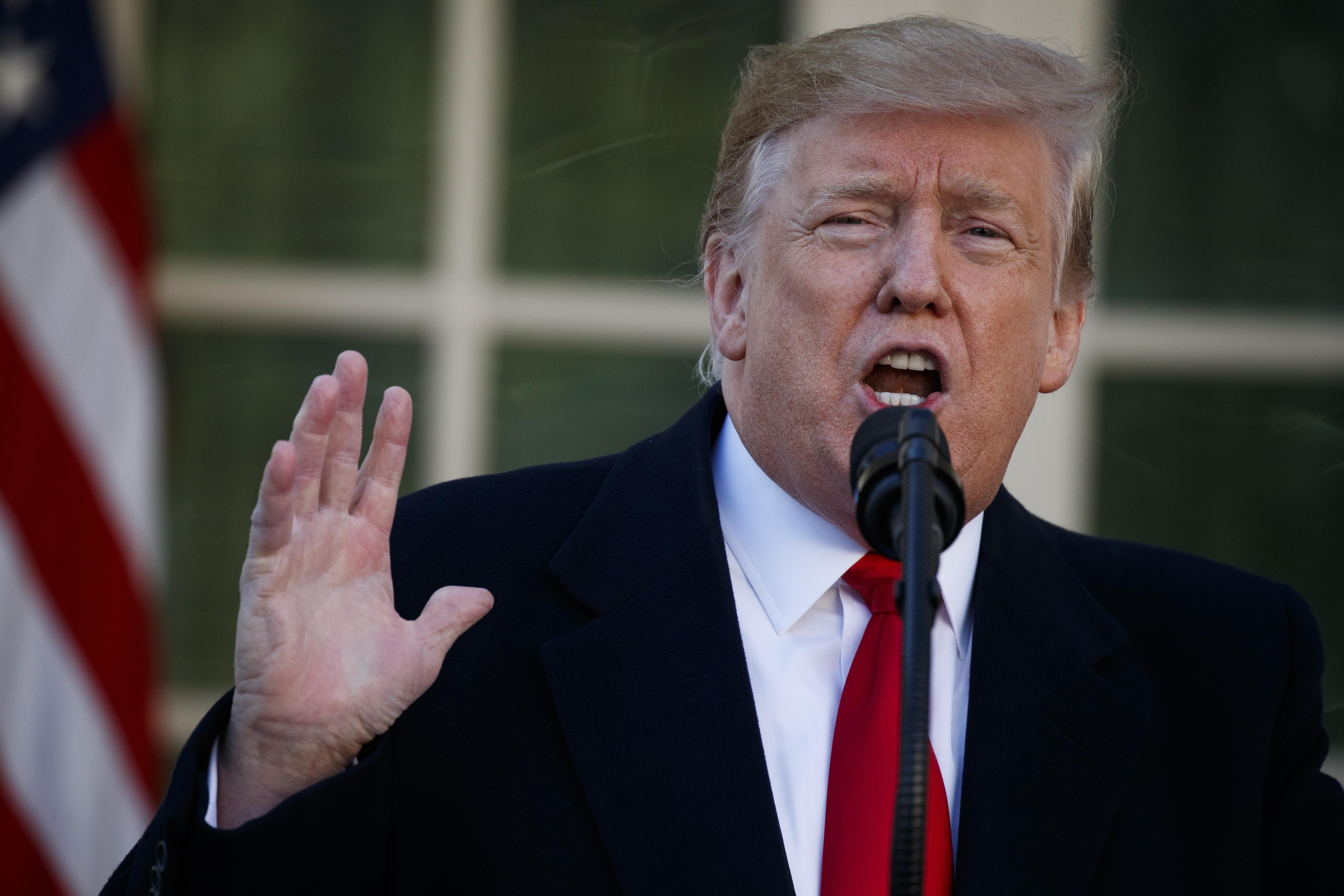SIDE EFFECTS
An ongoing investigation on the rising costs of prescription drugs
Trump's move on drug rebates good but may not lower prices, experts say
The Trump administration's move last week to shine more light on the actions of pharmacy supply-chain middlemen was welcomed by many who have been critical of the not-so-transparent industry.
But, they warn, it's not nearly enough to fix the problem.
The proposed rule would no longer shield the middlemen, known as pharmacy benefit managers, from federal anti-kickback laws if they keep part of the rebates they obtain from drugmakers. The three biggest middlemen — CVS Caremark, OptumRx and ExpressScripts — control more than 70 percent of the market, and they push makers of brand-name drugs to provide rebates in exchange for special access to their customers.
CVS Caremark, which serves four of Ohio's five Medicaid managed-care plans, has said that rebates don't lead manufacturers to raise their list prices, but it couldn't say who paid for the research it furnished to support that statement or whether it was peer reviewed. Meanwhile, a prominent health economist said the secretive nature of rebates make it impossible to definitively assess the effect of rebates on list prices for drugs.
In announcing the new rule, federal officials strongly suggested that rebates were pushing up prices when PBMs keep part of them. And they said it's tantamount to taking a kickback.
"When list prices rise, everyone benefits but taxpayers and the patients paying for the drug," a U.S. Department of Health and Human Services fact sheet about the proposed rule says.
While administration officials say the proposal will take millions of dollars of rebate revenue away from pharmacy benefit managers, CVS Caremark says it doesn’t keep rebate money.
“Government-mandated rebates in the Medicaid program are shared by the states and the Medicaid program. PBMs do not receive, and therefore do not keep, any of those mandated rebates. In addition, CVS Caremark passes 100 percent of any supplemental rebates for Medicaid prescriptions filled in Ohio to our managed-care clients,” said CVS Caremark spokesman Michael DeAngelis.
“In other words, we do not keep any amount of a drug manufacturer’s rebate for Medicaid prescriptions in Ohio. “
Drug Look Up | Use our database to see if you're paying too much for your prescription pills
But the Trump administration said PBMs' use of rebates has evolved to the point that the middlemen have an incentive to raise the price of drugs — which some health economists say is a leading cause of medical inflation. The proposed rule is a big step forward in terms of reversing that dynamic, said David Balto, a Washington, D.C., antitrust attorney who has filed court briefs opposing CVS's $70 billion merger with Aetna.
“This is a critically important action by the administration to start to deal with the PBMs’ complex schemes of payola that significantly raise the cost of drugs for consumers,” he said.
Balto noted, however, that the proposal would apply to only the Medicare and Medicaid programs, not to the vast amounts of money from other sources that flow through the system.
“The American pharmaceutical system in known as being the world’s leader in innovation," he said. "In no place is the PBM industry more innovative than at finding ways of holding people captive, creating complex, opaque relationships and abusing the regulatory process, so there’s a lot to do.”
Antonio Ciaccia of the Ohio Pharmacists Association said that pharmacy middlemen are adept at finding wrinkles in the regulatory fabric. He likened policing them to "playing chess against Bobby Fischer."
And the most recent draft of the rule might contain a big loophole: It would create a safe harbor that would "protect certain PBM service fees."
The fact sheet refers to them as "fixed fee services arrangements between manufacturers and PBMs." But Ciaccia said there's too much wiggle room in that language.
"There's this thing that looks like a rebate that they call a fee," he said, referring to the importance of words and their definitions in the drug-finance debate.
Marc Sweeney, dean of the School of Pharmacy at Cedarville University in southwestern Ohio, said it’s difficult to know whether the administration’s plan would lower drug costs. Drug companies pay PBMs to have their medications covered by Medicaid or Medicare.
“If the rebate is not allowed, will it reduce the cost of the drug? In theory, it should reduce the cost of the drug, but we do not get to dictate drug costs, so there is no guarantee” that eliminating rebates will lead drug manufacturers to discount drug prices, Sweeney said.
State Medicaid officials support the Trump administration’s effort but declined to speculate on whether the proposal would reap savings on prescription-drug costs as intended.
“Ohio Medicaid is certainly open to exploring innovative alternatives to bring affordable drug pricing to Ohioans while ensuring taxpayers get the best value. Ohio is not alone on this issue, and we look forward to hearing more from our federal partners regarding this national concern,” said Medicaid spokesman Tom Betti.
The rule will be published in the Federal Register on Wednesday. People then will have 60 days to comment, which HHS officials could use to modify the proposal.
